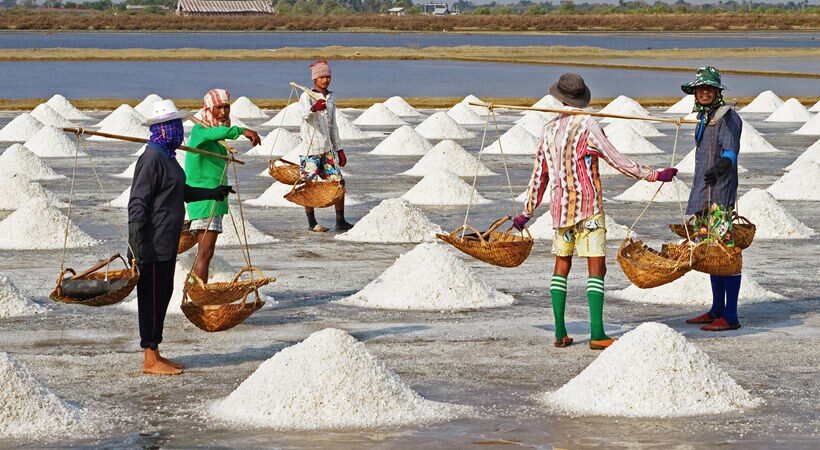To quote from Way Back to Paradise by Marie Christine, “And they say it’s our fault, We were thrown out of Eden, to be turned into salt”.
What is life without food and what is food without salt? In ancient times when accessibility was a big challenge and commuting from one place to another wasn’t easy as it is today. People had to manage within the ecosystem of available resources. Much before Darwin proving the human race with his theory of “survival of the fittest”, existing humans from prehistoric times had this survival instinct in order to sustain. Giving rise to new discoveries and an alternate way to meet the needs and make them self-sufficient.
Read More: Tastes of India: 5 Must try Indian Restaurants abroad
Similar history of Assam reveals about“Alkaline Solution” prepared from the ashes of Plaintain and Sotkhar is used as the main flavouring ingredient by the economically weak people as a substitute to salt. Plaintain happens to be a banana variant exclusively used for cooking, whose riped peel is dried and burnt into ashes, mixed with water and the filtered liquid becomes our “alkali” which is used to boost salty flavor in food. Sotkhar is an aquatic plant whose leaves and tender stem go through the same process as above to prepare the alkaline solution. By the way, in those days strainers like today didn’t exist, so people utilized earthen pot with fine holes plugged with naturally available straw from paddy harvest to percolate liquid down and collect filtered solution. No doubt availability of salt from hilly quarries and salt springs existed, but was quite expensive and a luxury for the commons.
Read More: Is Salalah in Oman the Kerala of Middle East?
The rock salt could easily be extracted but brine springs had a different technique. The probable areas were identified and wells were dug and their circumference lined with hollow tree trunks. From these, saline water is pumped out with help of capillary action and stored in long bamboo vessels. The evaporation is carried out in green bamboos until only salt crystals are left in the bamboo cane and finally the collected lump of crystals becomes merchantable. The reason behind salt turning expensive was due to its unavailability in the region of Assam and it mostly being traded by Nagas (people from Nagaland) to the bordering areas of Borhat, Jaipur (located at present-day Sivsagar district of Assam).



















